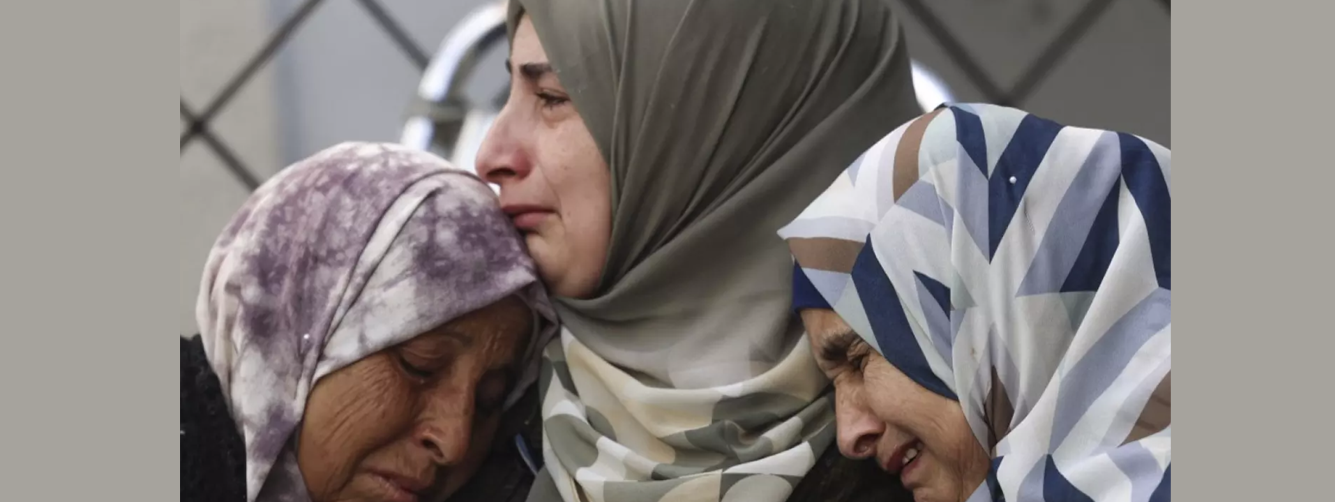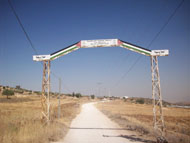
On July 5, 1950, the Israeli Knesset enacted item 5710-1950, otherwise known as the Law of Return. This law was to change the demographics of Palestine forever, beginning with just a few simple words: “Every Jew has the right to come to this country as an Oleh [immigrant to Israel]” and “A Jew who has come to Israel and subsequent to his arrival has expressed his desire to settle in Israel may, while still in Israel, receive an Oleh's certificate”. In essence, any Jew, from any part of the world, was afforded the right to simply show up and declare themselves citizens of Israel. In the eyes of the Jews, 2000 years of wandering were officially over. Unfortunately, for the Palestinians, the real struggle was just beginning. That very law, enacted some 58 years ago, still welcomes those making Aliyah (literally meaning ‘ascent’). The Law of Entry into Israel is the law that governs the entry of those not making Aliyah and it is this very law which is now being called into question, with Israel tightening its grip on issuing visas to tourists and for work purposes.
Having only a week ago experienced the infamous Passport Control interrogation at Ben Gurion Airport, it intrigued me as to how exactly Israel decides who should and should not be allowed into their country. I arrived at Ben Gurion in the early hours of the morning, to be greeted by not one but two Israeli immigration officials. After welcoming me to Israel, they opened my British passport to discover my Palestinian surname. This immediately appeared to incriminate me in their eyes and I was asked to go into a room with another officer who questioned me for over one hour as to the purpose of my visit in Israel. When I explained that I wanted to stay until late September, he coolly explained to me that it was “illegal” for me to be granted more than a month in the country (although he could offer no sound reasoning) and proceeded to stamp my passport with a three-month stamp, then corrected it by hand to permit me one month only. When I questioned this, he told me new regulations were in place whereby tourists are only allowed three months within any given year and that if I wanted an extension, I would need to apply to the Ministry of Interior. Although I knew this to be a complete fabrication and that this officer was acting as a law unto himself, I did not argue back as I knew this would be futile and could indeed result in me being given a week, or at worst, being denied entry.
Meanwhile, just outside of the room, an American tourist was ranting and raving about having lost his passport “somewhere in transit on a connecting flight from the United Kingdom”. After a short wait, an officer came and informed him that they would issue him a temporary paper to allow him entry into Israel. Incredible, but also very revealing. Whenever Israel is exposed as taking a separative attitude towards Palestinians, time and time again it retorts with the excuse of “security reasons”. Yet, here is a foreign national being granted free access into the country without so much as a passport, whilst I, with all the necessary documentation and not posing any threat to the state of Israel, am forced to accept four weeks. To suspect someone purely on the grounds of their Palestinian name is not only racist, but also is dangerous and foolish; after all, "terrorists" no doubt come in all races, shapes and sizes.
As I was leaving the airport, I saw a woman who I had earlier overheard telling a fellow passenger that this was her first time in Israel and that she was “making Aliyah”. Now, as I left dejected, with my one-month visa, I saw her being welcomed by a taxi driver holding a sign saying “Birth-Right” with her name on it. The sign also read “Welcome Home”; this is to a woman who had never before set foot in the country. It was then that the injustice really became apparent. Only recently, Zeina Ashrawi, a Palestinian woman living in the United States, had her Jerusalem ID revoked. As she rightly observed “If I were a Jew living anywhere around the world and had no ties to the area and had never set foot there, I would have the right to go any time I wanted and get an Israeli passport. In fact, the Israelis encourage that. I however, am not Jewish but I was born and raised there, my parents, family and friends still live there and I cannot go back! I am neither a criminal nor a threat to one of the most powerful countries in the world, yet I am alienated and expelled from my own home.”
Section 2 of the Law of Entry into Israel indicates all the various visas that the Ministry of Interior is entitled to grant. The wording of this section, among many other sections, reflects the broad discretion that the Israeli law gives the Minister of Interior. Tourists receive a B-2 tourist visa once they enter Israel; furthermore, anyone requesting a more permanent status needs to apply for one, which is granted by the Minister of Interior, who can approve or deny all such requests at his own discretion.
Entering the Palestinian territories is a whole other ballgame. Israel's arbitrary and abusive exercise of discretion over entry into the occupied Palestinian territories continues to cause serious and unjustified harm to Palestinian families, educational institutions and businesses. In December 2006, the Israeli Ministry of Defense’s Coordinator for Government Activities in the Territories outlined new procedures for entry into the occupied Palestinian territories. In March 2007, a similar statement was issued by the Israeli Ministry of Foreign Affairs and addressed to third state missions entering Israel and the Palestinian territories. Despite reported assurances from Israeli officials that under the new procedures entry denials would be based on legitimate security considerations, documented cases of persons denied entry indicate that the practice resulting from the implementation of CoGAT procedures remains arbitrary, abusive and internationally unlawful.
The two notices issued by Israeli authorities address only the issue of temporary admissions (typically for short term family visits, tourism and humanitarian, business, educational or other professional activities). Procedures for granting residency to foreign nationals whose center of life is in Palestine remain unaddressed. Together with the many foreign nationals who have established their primary business, investment or professional activities in the oPt, or otherwise aspire to build their lives in the oPt, the new procedures place them, at best, in a state of continuous uncertainty under constant threat of expulsion and exclusion.
In comparison to the worldwide Jewish community, consider the position of Palestinians whether they are refugees or of Palestinian-heritage, living in another country. What right of return do they have? According to Israel, none whatsoever. The Palestinian Right of Return principally asserts that Palestinian refugees, both first-generation and their descendants, have a right to return to the homes they were forced out of in either 1948 or 1967.
Two years before the Law of Return for Jews was passed, United Nations General Assembly Resolution 194 was passed on December 11, 1948. This resolution recognised for the first time the right of return for Palestinians. Article 11 of the resolution reads: “The General Assembly resolves that the refuges wishing to return to their homes and live at peace with their neighbours should be permitted to do so as the earliest practicable date, and that compensation should be paid for the property of those choosing not to return...”. However, as is often the case, the exact meaning was disputed from the start. Israel has argued that the recommendation applies to those who wish to leave in peace with their neighbors and as a consequence of the wider Arab states’ unwillingness to live in peace with Israel, there is no obligation to permit the refugees to return. So, although a discussion of the refugee status is beyond the scope of this article, it is worth noting that since Israel is prepared to deny the Palestinians their homeland, there is no reason for them to be welcoming to any other foreigners. After all, their aim is to keep Israel a Jewish state and they will go to any lengths to maintain the status quo.
It is now that time of year, when people are preparing for their summer trips to Palestine, perhaps to visit family and friends. Certainly anyone with relatives in the Gaza Strip can be assured they will not be visiting that area anytime soon. Moreover, Israel constantly denies being an occupier; yet how much more evidence of an occupation do we need? The situation now is such that Israel is controlling exactly who comes in and out of Palestine, which amounts to an occupation with a very hefty price tag for Palestinians and some foreign nationals as well. Meanwhile, any Jew, with no original ties to the country can come and set up home here. If only Palestinians were that fortunate.










